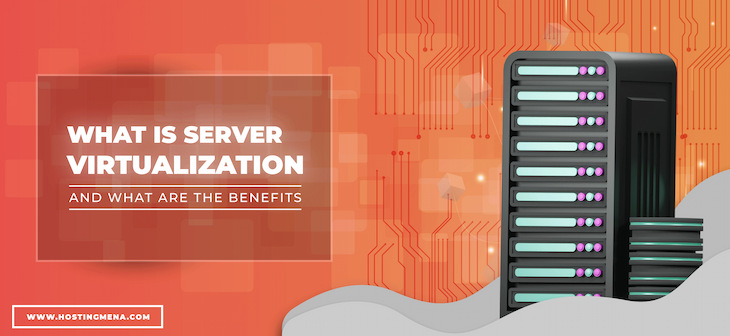What is Server Virtualization, and What Are the Benefits?
Over the past couple of decades, we have seen that allocating virtual resources to applications and operating systems instead of dedicating particular server software and hardware to computing assets has become a significant part of data center operations and design. This article covers everything you need to know about server virtualization and its benefits.
Do you need help to extend the life of your control system applications or want to know about the availability of parts for your server? Even if you are trying to get more utilization out of your investment in future purchasing of your server hardware, virtualization can give you a platform, enabling you to meet all these challenges.
What is Server Virtualization?
Server virtualization is the process of organizing a single server into multiple servers virtually. You do not need a new or additional server for this process. Instead, you need virtualization hardware or software that takes the existing server and makes partitions into multiple isolated virtual servers. However, all servers are capable of running independently at their potential.
Servers host files and applications, offering functionality for other important programs. So, the device processes the upcoming requests and gives data to other computers in LAN (local area network) or WAN (wide area network). Usually, servers are powerful enough to carry out complicated tasks conveniently.
A single server only uses one operating system, which is generally dedicated to a single task or application. It is because most apps do not perfectly function together on a single server. As a result, the major part of the server’s processing abilities goes unused. In server virtualization, the server is converted into multiple virtual servers that can run multiple OSes and Apps effectively in an isolated environment. In this way, you cannot waste the processing power. Therefore, you should prefer server virtualization from the best UAE VPS hosting company to get the full benefits of it.
Usually, servers take up space and need regular maintenance. Also, they need to be placed in a cool and dust-free environment. Combining hardware costs, maintenance costs, and cooling costs, it becomes harder for smaller organizations to afford them. Therefore, it is suggested to go for server virtualization, which is the best way to manage your data center’s needs without any additional costs.
Background:
Server virtualization technology came into the enterprise in the early 2000s. In the start, server virtualization was implemented with the aim to enable OSes such as Linux and Windows to run side by side on a single server. Although two different types of OSes running on the same server were surprising, they gained popularity later on.
The idea of using a single set of resources in multiple virtual entities was not new. It goes back to the 1960s when IBM introduced partitioning on its mainframe computers. They aimed to enable IT admins to run its CMS operating system on a single hardware. After decades, server virtualization got popular when EMC – in its pre-Dell incarnation – acquired VMware in Dec 2003. Since then, this technology has gained immense popularity because of its extensive benefits.
Top 10 Benefits of Server Virtualization
Virtualization is more than just an IT trend. Although it is not new, it does offer many benefits to organizations of all sizes. The benefits, such as desktop and server provisioning, limiting physical servers, and increased uptime and availability, come along with server virtualization. The list goes on and on.
Server virtualization proved itself a revolutionary solution for IT management. It presents many capabilities that were nearly impossible within a physical infrastructure. If we talk about the economy, the advantages of server virtualization are focused on saving costs for the company. You can install multiple applications on a single physical server, which saves a lot of money.
Let’s have a look at the following benefits of server virtualization and how it can help your organization in the long term.
1. Saving Costs
It is the most immediate advantage of having server virtualization. You won’t need to buy many physical servers; hence it saves a lot of money. In most data centers, some servers run at their maximum potential while others are being used rarely because of undemanding applications. Using the available resources can save costs.
With server virtualization, the less-demanding operating systems and applications can run on a single machine, saving hardware costs. The overall effect is that you will need fewer servers running efficiently. You can realize cost savings through reduced hardware purchases. You may want to look for a better hosting plan that can offer you the best plan possible for server virtualization.
2. Efficient Provision of Resources
With regular physical servers, matching the resources to application needs is often challenging. In comparison, server virtualization offers the easiest way to provide specific resources to individual servers to run specific applications.
3. Improved Productivity
With faster and more efficient server provisioning, you can yield an overall improvement in work productivity. You can easily deploy new servers working at their full capacity without needing a lot of time. When you do not need the server anymore, you can easily take it down or decommission it.
4. IT Consolidation
In data centers, we see a common occurrence called server sprawl. It becomes difficult when new servers are added to manage new applications while older servers continue handling some processes or stay unused. In server virtualization, you get server consolidation. With it, fewer hardware pieces are needed. So, it can consolidate physical resources that can help you yield significant savings on maintenance, power, cooling, and overall operational costs.
5. Better Management
Server virtualization technology brings IT administration one step closer to better management. Server virtualization system uses centralized management apps to monitor and adjust the status of all available virtual servers as required. Reducing the several management tools can help you with both time and cost savings.
6. App Development is Easier and Safer
The capability to develop and deploy, then eliminate virtual servers, is specifically effective in app development environments. It is especially viable where production-oriented servers only are required for short periods of testing. Moreover, it is easier to configure app development servers to mirror the production environment. It doesn’t even affect the active server operations.
7. Flexibility and Scalability
In server virtualization infrastructure, you get more flexibility and scaling compared to traditional environments. You can easily move or clone one piece of hardware to another in virtual servers. It makes hardware upgrades and tuning of performance an effortless process. Moreover, you can easily tap these capabilities to transition to a cloud service. You can easily maintain a hybrid infrastructure as well.
8. Hosting Multiple Operating Systems
With server virtualization, you can run different operating systems on the same server hardware. It is a significant benefit because Linux and Windows servers can easily co-exist on the same physical server. It enables virtual servers to host applications that are specifically conducive to each operating system. So, be thoughtful while choosing the web hosting for your servers.
9. Improved Storage Capacity Management
Better storage control and capacity management of the resources are one of the key benefits of server virtualization. The provision of storage for different applications running on virtual servers is a comparatively faster and easier process. It certainly is when compared to conventional storage provisioning methods. Administrators can ensure that shared storage is efficiently used because they can adjust the storage allocations easily.
10. Business Continuity, Disaster Recovery is Easier
Server virtualization makes business continuity easier and the process of disaster recovery much cheaper. When a disaster hits the data center, virtual servers can quickly spin up remotely to enable business processes easier to continue. Server virtualization is the key enabler of cloud services, making disaster recovery much more affordable for all sizes of businesses.
Get the Best Solutions for Server Virtualization with HostingMENA!
HostingMENA offers a wide range of hosting services that can help your business thrive. We have experts providing exemplary hosting plans at much more affordable pricing. If you are thinking of building a new data center or upgrading an existing one, you should contact us to see your options for server virtualization.
Frequently Asked Questions:
What is server virtualization?
Server virtualization is the process of structuring a single server into multiple virtual servers.
What are the benefits of server virtualization?
The key benefits of server virtualization include cost saving, efficient resource provisioning, better management, hosting of multiple OSes, etc.
What are the types of server virtualization?
There are three core types of server virtualization that include full-virtualization, para-virtualization, and OS-level virtualization.
Does server virtualization increase productivity?
Yes, server virtualization increases work productivity because of faster and more efficient server resource provisioning.






